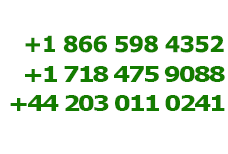Chlorhexidine topical
What is chlorhexidine topical?
Chlorhexidine is an antiseptic that fights bacteria.
Chlorhexidine topical (for the skin) is used to clean the skin to prevent infection that may be caused by surgery, injection, or skin injury.
Warnings
Chlorhexidine can cause a rare but serious allergic reaction that may be life-threatening. Get emergency medical help if you have: hives, severe skin rash; wheezing, difficult breathing; cold sweats, severe dizziness; swelling of your face, lips, tongue, or throat.
Before taking this medicine
You should not use chlorhexidine topical if you are allergic to it.
Ask a doctor or pharmacist if it is safe for you to use chlorhexidine topical if you have any allergies to food, dyes, animals, or medicines.
It is not known whether chlorhexidine topical will harm an unborn baby. Tell your doctor if you are pregnant.
It is not known whether chlorhexidine topical passes into breast milk or if it could affect the nursing baby. Tell your doctor if you are breast-feeding.
Be very careful when using chlorhexidine topical on a child younger than 2 months old. This medicine may cause severe irritation or chemical burns on a very young child.
How should I use chlorhexidine topical?
Use exactly as directed on the label, or as prescribed by your doctor. Do not use in larger or smaller amounts or for longer than recommended.
Do not take by mouth. Chlorhexidine topical is for use only on the skin.
Rinse the skin before applying chlorhexidine topical. Apply only enough medicine to cover the area you are treating. Do not apply this medicine to deep cuts, scrapes, or open skin wounds.
To use chlorhexidine topical soap, apply only enough to cover the area you are treating. Wash the area gently, then rinse thoroughly with plain water. Avoid using over large areas of skin.
This medicine is made under sterile conditions, but its contents are not sterilized. It is possible for bacteria to get inside the product and contaminate it, which could spread infection. To avoid contaminating your medicine with bacteria:
- Use only the swab, pad, or applicator provided with your medicine.
- If no applicator is provided, use only a clean cotton ball or cotton swab to apply this medicine.
- Do not touch the tip of the medicine bottle with your fingers or touch it to your skin.
- Do not dilute the medicine with water or other liquid.
- Use the applicator (pad, swab, or other dressing) only once. Throw away after one use.
- Call your doctor if your symptoms do not improve, or if they get worse while using chlorhexidine topical.
Store at room temperature away from moisture and heat. Do not freeze. Keep the bottle tightly closed when not in use.
What happens if I miss a dose?
Use the missed dose as soon as you remember. Skip the missed dose if it is almost time for your next scheduled dose. Do not use extra medicine to make up the missed dose.
What should I avoid while using chlorhexidine topical?
Avoid getting chlorhexidine topical in your eyes, ears, nose, mouth, rectum, or vagina. If this does happen, rinse with water.
Avoid using other medicines on the areas you treat with chlorhexidine topical unless your doctor tells you to.
Avoid getting this medicine on your clothing or other fabrics. Do not use bleach to wash any fabric exposed to chlorhexidine or the medicine may cause a permanent stain.
Chlorhexidine topical side effects
Chlorhexidine can cause a rare but serious allergic reaction that may be life-threatening. Get emergency medical help if you have signs of an allergic reaction: hives, severe skin rash; wheezing, difficult breathing; cold sweats, severe dizziness; swelling of your face, lips, tongue, or throat.
Chlorhexidine topical may cause serious side effects. Stop using chlorhexidine topical and call your doctor at once if you have:
- severe burning, itching, or redness;
- blistering or peeling;
- swelling or severe skin rash; or
- any other severe irritation of treated skin.
Less serious side effects are more likely, and you may have none at all.
What other drugs will affect chlorhexidine topical?
It is not likely that other drugs you take orally or inject will have an effect on topically applied chlorhexidine. But many drugs can interact with each other. Tell each of your health care providers about all medicines you use, including prescription and over-the-counter medicines, vitamins, and herbal products.





